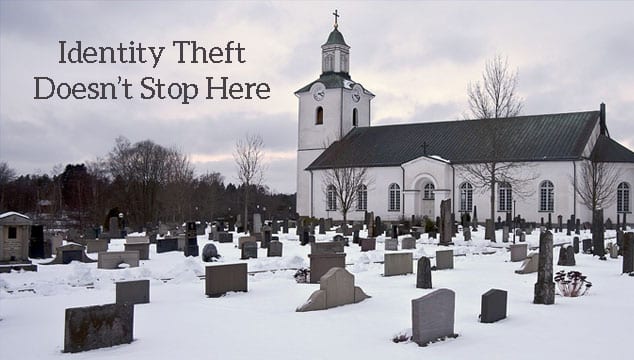
You know that I go to great lengths to protect myself from identity theft. I do what I can from my end even though I have no control over corporate breaches. Ugh!
But, there are others in my family who may be at risk.
Have you ever had a close family member pass away? You probably said ‘yes’ to that question. If so, you know that the family writes an obituary for the newspaper that includes a number personal details. When I was the Executor for my father’s estate, I did that. I even looked at the newspaper to see what information other families included to make sure I didn’t leave anything of importance out.
Well, that was mistake number #1.
I (like many others) handed a potential identity thief the information on a silver platter. I included his date of birth, where he grew up, the names of my mother and siblings, his past places of employment, and the organizations he was a part of. I included everything everything but his social security number.
According to AARP, 2.5 million deceased people have their identity stolen postmortem each year. This is wide spread and the victims can’t speak up, so it’s a win for the thief.
So what can you do about it?
- Send death certificates to the three credit reporting agencies and request that a death alert be posted to the deceased credit report – I did this.
- Contact the banks and investment companies with death certificates. See if you can get the accounts out of the deceased’s name. In some states you can do this if the account was joint – I took care of this, too.
- Notify the Social Security Administration, the IRS and Motor Vehicles – this is where I could have done more (partial mistake #2 – I did social security and the IRS but not motor vehicle).
Then, preventatively, check the deceased’s credit reports to monitor for any suspicious activity so you can catch it early on. For more options, please go to my previous newsletter on reports available to consumers.
Hopefully, I won’t lose anyone close to me anytime soon, but from now on I will do ALL the steps – not just most. I was somewhat lucky, as my father was collecting social security and had a government pension, so I notified both. It didn’t even occur to me to notify the DMV. Learn from what I have done (and not done) to protect your loved ones.
Leave a Reply